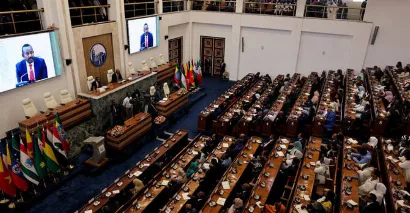Key Highlights
The agreement comes after months of talks and is a turning point in Portuguese politics that echoes increasing resistance to Portuguese immigration that has been at the centre of Chega's platform. The party, which became the leading opposition following the May 2024 elections, has taken advantage of figures indicating a sharp rise in the foreign-born population, who numbered more than 1.5 million at the close of 2024—almost four times the number in 2017.
What’s Changing in Portugal’s Nationality Law?
The bill adds a number of significant alterations to the method of becoming a Portuguese citizen. The most important thing is the expansion of the period of time needed for residency. Although exact figures are still being negotiated, the proposal is to raise the minimum residency from five to as much as ten years for the majority of applicants. For citizens of countries where Portuguese is the official language, the planned requirement is seven years of lawful residence.
Besides an extended residency period, the applicants will be subjected to more stringent integration requirements. These involve compulsory tests to demonstrate competency in the Portuguese language, along with cultural knowledge and civic responsibilities in the country. Stricter restrictions based on criminal records are also part of the government's proposal.
Also Read: Portugal Tightens Migrant Labour Laws: End of Work Permits for Certain Work
Key Features of Portugal’s New Nationality Law
The chart below illustrates the major alterations made by Portugal's new law on nationality. These changes, made in accordance with the far-right Chega party, make the process for foreigners acquiring citizenship stricter. The main changes are an extended residency requirement and tougher integration requirements, indicating a fundamental change in policy.
Growth of Foreign Population in Portugal (2017–2024)
This graph shows the sharp rise in the foreign-born population between 2017 and 2024 in Portugal. This population trend has been a key issue in the political debate spearheaded by the Chega party and a key impetus for demanding stricter immigration and nationality regulations.
|
Year |
Foreign Pop |
% of Total |
|
2017 |
400,000 |
4% |
|
2024 |
1,500,000 |
15% |
The Political Alliance Behind the New Law
The new nationality law is the result of a strategic alliance between the centre-right minority government, led by Prime Minister Luís Montenegro, and the far-right Chega party, led by André Ventura. Lacking a majority in parliament, the government relied on Chega's support to pass the legislation.
André Ventura, the Chega leader, stated, "Portugal today belongs to the group of European nations where it will be harder to get nationality," emphasising that both parties made "concessions" in the talks. The cooperation is merely a sign of Chega's growing influence in Portuguese politics. The party has been uplifted by an assertive anti-immigration policy, appealing to a segment of citizens concerned with the growing number of foreign residents.
Also Read: Portugal's Golden Visa Scheme: Boosting Affordable Housing for Migrants
Broader Immigration Reforms
These changes to Portugal's nationality laws are part of a wider shake-up of the country's immigration system. At the beginning of the year, in 2025, the government had already acted to make immigration laws stricter. A package of reforms in June 2025 involved rebalancing residence pathways and reforming family-reunification criteria.
The revised foreigners' law, adopted in September 2025 with Chega's vote, makes it harder for immigrants to come to the country and for their family members to join them. Family reunification is now usually feasible only after an immigrant has lawfully been in the country for a period of two years. Furthermore, the government rescinded a section that permitted migrants who had worked and paid social security for more than one year to legalise their status, even if they entered as tourists.
Conclusion
The new Portuguese nationality rules, the product of a coalition between the minority government and far-right Chega party, mark a sea change in Portugal's policy toward immigration and citizenship. By expanding the requirements for residency and applying more stringent integration requirements, Portugal is shutting doors previously more ajar to foreigners. This change not only impacts potential citizens but also reflects a new political landscape in Portugal, with the far-right influence determining national policy.
As the country moves forward with these changes, the long-term social and economic consequences for both Portuguese society and its immigrant communities will be closely watched. For official details on these changes, visit the Portuguese Government's official website, which outlines the reinforced requirements for citizenship and residence. To learn more about Portugal immigration, visit TerraTern now!








